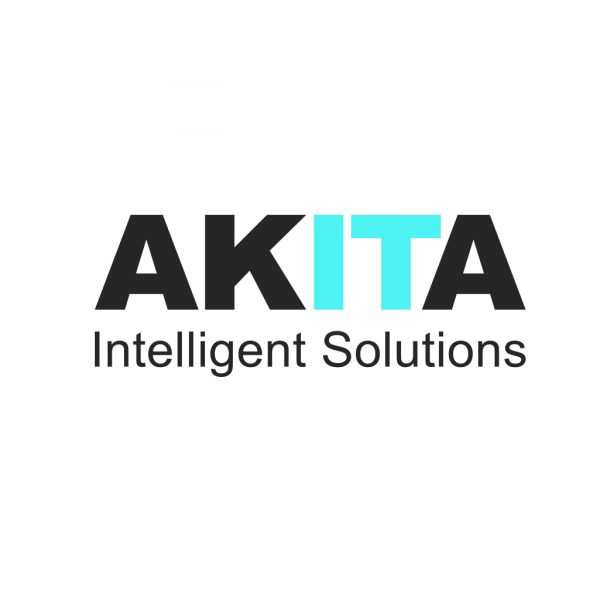In recent years, SMB organisations have woken up to how essential Customer Relationship Management (CRM) software is for operations.
Ironically then, it’s now larger companies that are more hesitant to undertake the digital transformation necessary to enhance customer interactions, streamline operations, and drive sustained growth.
Clearly there is huge potential for a large-scale CRM project to cause disruptions to larger businesses. However, by carefully planning and partnering with the right experts, businesses can unlock the full potential of CRM technology.
As a leading provider of Microsoft CRM solutions, Akita offers this guide to successfully navigating a large-scale CRM project, and how to future proof investments in the process.
Understanding The Challenges Of Enterprise-Wide CRM Projects
A large-scale CRM project will typically involve the deployment of a robust solution to all areas of an enterprise.
Beyond finding a solution that can cover all of an organisation’s requirements, there’s a wider set of inherent challenges:
Complexity Across Departments: Integrating diverse workflows and priorities from sales, marketing, customer service, and operations into a single CRM system without compromising functionality is a huge challenge. Choice of proven software is critical in this regard, as well as ensuring that your solution can continue to scale over time.
Data Consolidation: Cleaning, migrating, and integrating disparate data at scale from multiple tools, systems, and (potentially) geographies is a significant task central to the project’s success. Any project needs to address this task specifically and with tight control to avoid error or project drift.
Aligning software & applications: Even with the best software, not every business software function can fit inside of a CRM system. Planning for, then navigating, the complexities of integrating a new CRM with existing tools, and ensuring compliance with data privacy regulations, should therefore not be underestimated.
Internal Resistance: Overcoming employee hesitation towards new systems is essential. Implementing robust change management strategies, including training and communication schedules, should be central to any deployment plan.
What Are The Key Considerations For Large-Scale CRM Projects
The success of a large-scale CRM project hinges on several critical factors, which must be addressed to ensure the system delivers its full value:
Business Goals
First and foremost is the alignment of the CRM initiative with the organisation's overarching strategic goals.
A CRM project should directly support objectives such as improving customer retention, enhancing sales efficiency, expanding market share, or fostering better cross-department collaboration. Without this alignment, the system risks becoming a siloed tool rather than a transformative solution. Leaders must clearly define the role of the CRM system in achieving these goals and communicate this vision across the organisation.
Buy-In
Engaging all stakeholders is vital to. Large-scale CRM projects impact multiple departments, both directly and indirectly. By involving stakeholders early in the process, businesses can ensure that diverse perspectives are considered. This approach not only fosters a sense of ownership among team members but also increases the likelihood of smooth adoption and integration of the system. Regular feedback loops and stakeholder meetings can further enhance engagement and refine the implementation process.

Future-proofing
Ensuring the scalability and flexibility of the CRM system are paramount. As businesses evolve, CRM needs and complexity will change. Choosing a platform capable of scaling with business growth and adapting to new market demands is crucial. This flexibility enables the system to remain relevant and effective, even as the organisation expands or encounters shifting industry conditions.
Data Out Of Silo
Effective data integration and management are foundational to large-scale CRM project. Organisations must consolidate data from multiple sources, such as sales platforms, customer service tools, and external databases, to provide a unified view of customer interactions. This requires robust data integration strategies and tools to ensure that information remains accurate, accessible, and actionable. Furthermore, data privacy and compliance must be prioritised to meet regulatory requirements and build customer trust.
User Adoption Measures
Training and support play a pivotal role in the success of a CRM system. Employees need to be equipped with the skills and knowledge to effectively use the system. Comprehensive training sessions, tailored to different user roles, can empower teams to maximise the CRM's capabilities. Additionally, ongoing support should be available to address challenges, refine processes, and ensure that the system evolves alongside organisational needs.
Changing Practices
Change management cannot be overlooked in a project of this scale. Implementing a CRM system often requires significant adjustments to workflows, roles, and routines. Developing a structured change management plan, complete with communication strategies and transition support, can help address resistance and ensure a seamless shift to the new system. Highlighting the benefits of the CRM system and providing clear timelines for the transition can help ease concerns and build enthusiasm among team members.
Know Your KPIs
Finally, performance metrics and evaluation mechanisms should be established from the outset. Defining key performance indicators (KPIs) allows organisations to measure the CRM system's impact and identify areas for improvement. Regular evaluations can ensure the system continues to deliver value and aligns with evolving business goals. This iterative approach helps businesses fine-tune their CRM strategy and maintain its relevance over time.
Trends For CRM Projects In 2025
Several trends are shaping the CRM landscape at present and should be part of any deployment.
Artificial intelligence (AI) integration is becoming a cornerstone of modern CRM systems, enabling predictive analytics, personalised customer experiences, and process automation. AI-driven insights allow businesses to anticipate customer needs and deliver tailored solutions, setting them apart in a competitive marketplace. Your chosen software should have established AI capabilities and a confirmed roadmap of future developments.

User experience is also taking centre stage. CRM platforms are increasingly designed to be intuitive and user-friendly, reducing the learning curve for employees and boosting system adoption rates. Enhancements like voice and conversational interfaces further improve accessibility, allowing users to interact with the system naturally and efficiently.
IoT integration is another significant development. Connecting IoT devices with CRM systems provides real-time data on product usage, maintenance needs, and customer behaviours, enabling more proactive and informed decision-making. Additionally, the rise of self-service CRM options, such as chatbots and automated support, empowers customers to resolve issues independently while reducing the burden on support teams.
Selecting A Large-Scale CRM Project Partner
Choosing the right partner is one of the most critical decisions in a large-scale CRM project.
A reliable CRM partner brings the expertise and experience needed to guide the process and ensure success. Your partner should have a proven track record of implementing CRM systems for large enterprises, ideally within your industry.
Their familiarity with common challenges and solutions can save time and resources during implementation. It can also lead to them suggesting enhancements that go beyond initial aims but offer value as they scale.
Additionally, the partner should demonstrate a high degree of technology proficiency, staying at the forefront of the latest CRM advancements. They must be adept at leveraging the latest tools, from AI-powered analytics to integration with other enterprise systems. Customisation capabilities are equally important; a one-size-fits-all solution rarely meets the complex needs of a large enterprise. The right partner will tailor the CRM system to align with your specific workflows, processes, and goals.
Ongoing Support
Beyond technical expertise, post-implementation support is crucial. The CRM partner should offer ongoing maintenance, updates, and troubleshooting to ensure the system operates smoothly. Their ability to adapt the system as your business evolves will further solidify their value. Cultural alignment with your organisation is another consideration. A partner who understands and respects your company culture can foster collaboration and facilitate a smoother project journey.
As a trusted Microsoft CRM project partner, Akita Intelligent Solutions is ready to help your organisation navigate the complexities of CRM implementation at scale.
Contact us today to learn how we can transform your customer management capabilities and set your business on the path to success.





